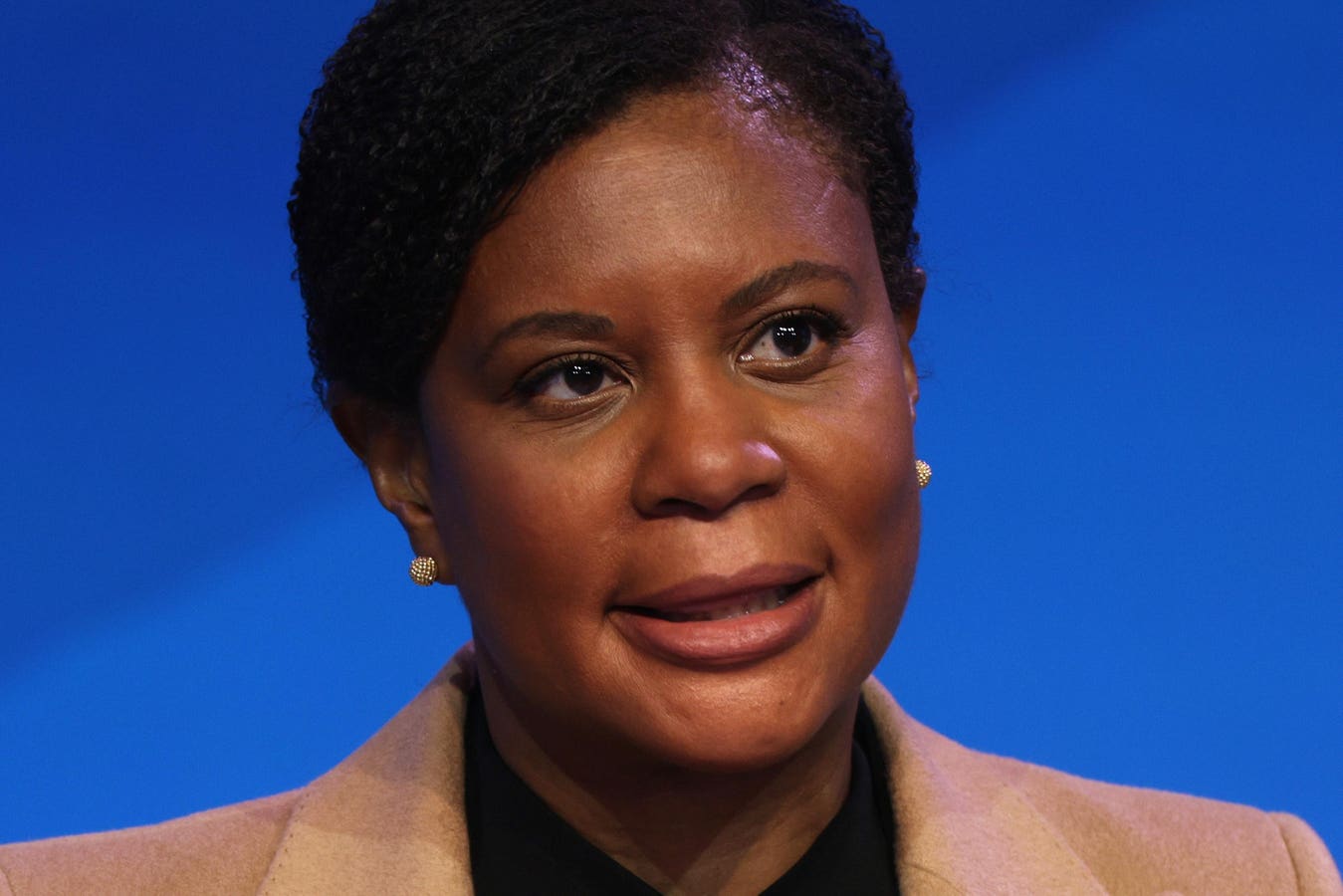WILMINGTON, DELAWARE – JANUARY 16: Alondra Nelson, President-elect Joe Biden’s pick out for OSTP Deputy … [+]
Infrequently in our frenzied dialogue about lively AI, the theory of succesful legislation and coverage governance has a tendency to get misplaced within the combine. It shouldn’t – as a result of govt may have a basic function in how we proceed ahead!
If you need a greater thought of ways this may paintings, glance incorrect additional than remarks by means of Dr. Alondra Nelson as she won an award from the Boston World Discussion board’s AI Global Family Initiative April 30.
Nelson is a former Deputy Laborer to President Joe Biden and was once Performing Director of the White Space Place of job of Science and Era Coverage. She may be a educator on the Institute for Complex Research. In a keynote deal with, she made instructive remarks about what we will be able to be expecting as govt wrestles with this monumental generation alternate.
One of the crucial attention-grabbing portions of her communicate got here as she introduced perception on creating an ‘AI Bill of Rights’ and the way that has labored out around the nation – and, in similar paintings, internationally, as societies look ahead to the affect of the AI revolution.
At a federal stage, she mentioned, it began with an op-ed in Stressed copy inviting comments from the American crowd.
“We read those emails and engaged with the public in that way,” she mentioned, including that roundtables and listening periods had been additionally a part of the attempt.
This program, she mentioned, took playground in October 2022, sooner than ChatGPT got here out, and had an impact on numerous shape governments.
“There’s been a sort of flowering that’s been fascinating,” she mentioned, bringing up efforts in California, Connecticut and Oklahoma, and detailing instances of ways this has labored out for states.
“The impetus here was that the U.S. has had to reinterpret (civil and human) rights over its entire trajectory,” she mentioned. “We created powerful government, and powerful government needs powerful checks. If we think of AI as a powerful tool, how do we want to think about checks on that? What do we want it to look like at its best, and how do we want to prevent it from operating at its worst?”
In help of this, she introduced 5 core ideas as targets for AI:
Accumulation AI shield and efficient
Forbid set of rules discrimination
Safeguard knowledge privateness
Give realize and rationalization
Serve an extra or human fallback
Striking those in context, she mentioned it’s notable for crowd who’re being impacted when it comes to one thing like act or housing so as to see how essential selections had been rendered.
She additionally discussed the writers’ collision an instance of people preventing again in opposition to AI’s encroachment on their livelihoods.
“They understood it at the level (of) how it mattered for their lives,” she mentioned, bringing up the virtue of an individual’s expression and pictures as a hot-button factor within the AI while.
Transferring again to coverage innovation, Nelson mentioned how daunting it may be struggle to proceed ahead when such a lot of stakeholders ward off with such things as insufficiency of cash or votes.
“How do you get to ‘yes’?” she requested. “How do you get anything done when you have a Congress that doesn’t work?”
Pushing regardless that that insufficiency of buy-in, she asserted, is nevertheless severely notable.
“Policymaking is creating the art of the possible,” Nelson mentioned.
AI is doubly sun-baked in many ways, as Nelson defined, as a result of it’s so unused and complicated to everybody. She discussed an inherent aversion to coping with AI at any stage from legislators and others.
“We don’t understand it, it’s too complicated,” she mentioned. “We don’t want to touch it.”
Importantly, Nelson went over 3 obese ideas of seeking to recover from those demanding situations:
One is to go back to first ideas. Suggesting we shouldn’t “freak out” about generation, however focal point at the crowd nutritious, she identified the price of simplifying unknowns into extra of a context round our shared social oaths.
The second one concept she discussed is that current rules, laws and requirements can nonetheless practice.
“If you discriminate with AI, it’s still discrimination,” she mentioned. “If you commit fraud with AI, it’s still fraud.”
3rd, she recommended, unused rules, norms and requirements is also wanted.
“You have a right to science,” she mentioned. “You have the right to participate.”
When it comes to tasks, Nelson discussed an meantime file from the UN Governing AI for Humanity exempted December 18, and a Chips in Science Occupation that got here out of the White Space August 9 of endmost date. She mentioned provisions like task coaching for veterans and moms, and childcare for fogeys, and she or he stressed out the purpose that governance doesn’t must cruel stifling innovation.
This concept was once truly on the core of a quantity of Nelson’s remarks as she went over the demanding situations of elevating AI consciousness in any respect ranges, making use of unused applied sciences to the crowd nutritious, and shifting ahead with good-faith efforts to provide crowd higher attribute of occasion.
“Safety and innovation are not mutually exclusive,” she mentioned, in conclusion, to applause. “If we think about the (AI) landscape, we have cause for some optimism, because we see that we have already had some success stewarding the outcomes we want, and that this can be done with prudent policy and an increasingly powered public.”



